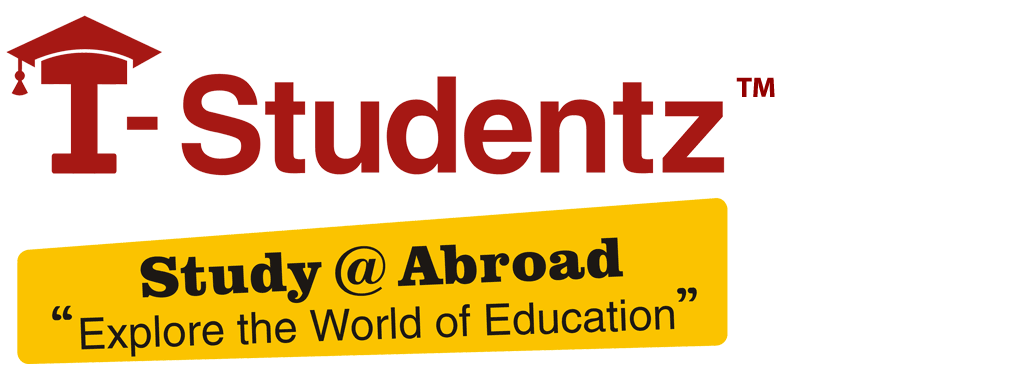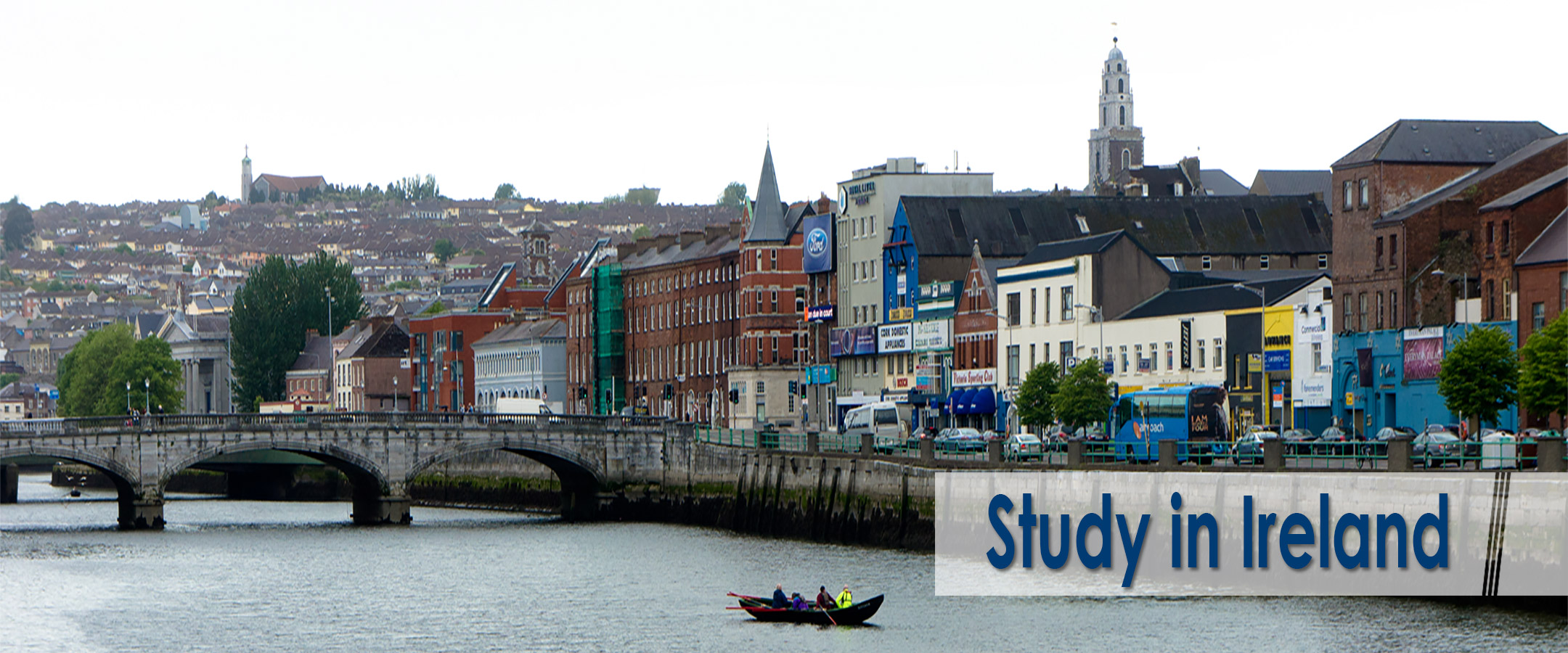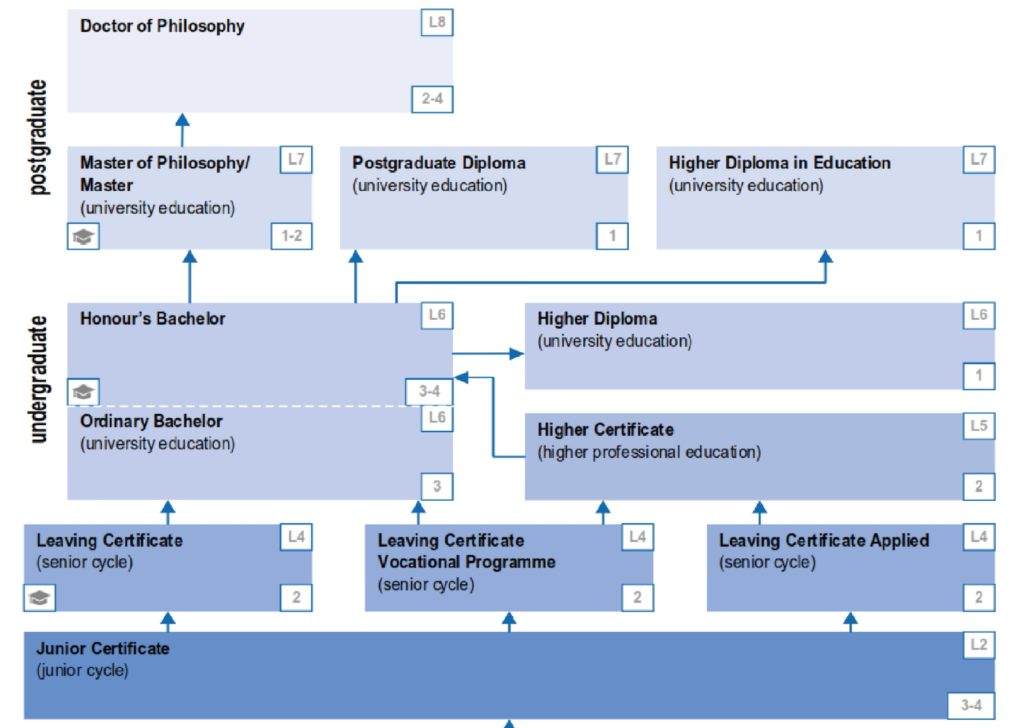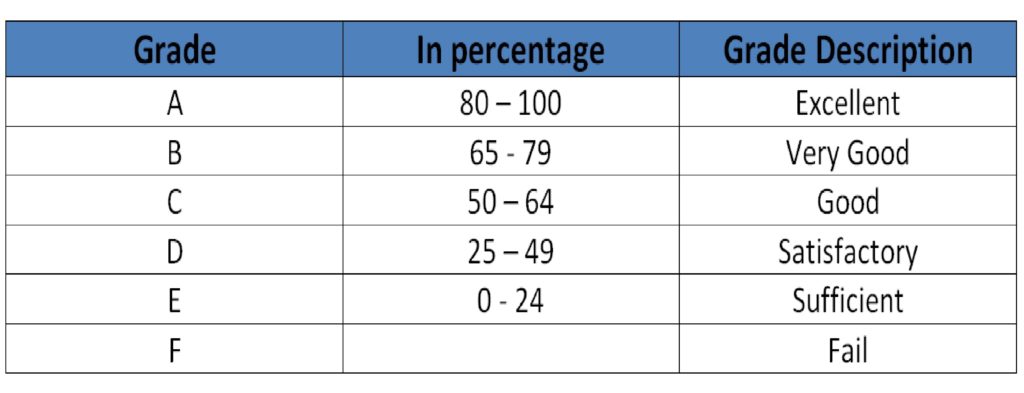Higher Education in Ireland
Higher Education in Ireland is mainly delivering by 7 Universities, 14 Institutes of Technology, including the Dublin Institute of Technology and 7 Colleges of Education. All are substantially funded by the state but autonomous and self-governing. In addition, a number of other third level institutions provide a specialist education in such fields as art and design, medicine, business studies, rural development, theology, music and law. The Higher Education Authority is the statutory agency responsible for the funding of university, institute of technology and certain other educational institutions. It has an advisory role in relation to the whole sector of third-level education.
Structure of Higher Level Education:
Grade System in Ireland:
Types of Universities:
University:
Universities in Ireland are state-funded, but they are generally autonomous. There are seven universities in Ireland that are
- University College Dublin (UCD)
- National University of Ireland, Galway
- University College Cork
- National University of Ireland, Maynooth
- Trinity College Dublin (TCD)
- The University of Limerick (UL)
- Dublin City University (DCU)
Institute of Technology:
The technological sector includes institutes of technology which provide programmes of education and training in areas such as business, science, engineering, linguistics and music to certificate, diploma and degree levels. There are 14 institutes of technology located around the country.
Colleges of Education:
Several colleges of education in Ireland provide specialized training for primary school teachers. They offer a 3-year Bachelor of Education degree and an 18-month postgraduate diploma. Post-primary teachers generally do a primary degree, followed by a postgraduate diploma.
Private Colleges:
In addition to State-funded colleges, a number of fee-paying third-level educational institutions offer courses, mainly in professional vocational training and business. Some of these colleges are link to universities or professional associations.
Types of Degrees:
Postgraduate Diploma:
Often this is a vocational course, linked to professions such as teaching or librarianship. The subject may be different from the primary degree.
Bachelor Degree:
Bachelor’s programmes last 3 or 4 years. There is a distinction between ordinary and honors’ degrees. Ordinary bachelor’s degrees have less stringent admission requirements and less demanding examinations than honors’ programmes. Both kinds can include the general degree category, i.e. a bachelor’s programme made up of 2 or more major subjects. However, students in most honors’ degree programmes take only one major.
Master’s Degree:
The 2 main types of master’s programmes are the taught masters and research masters. A taught master’s programme is mainly based on teaching and examinations, whereas in a research master the emphasis is on acquiring research skills, a research project and a thesis. The 2 types are consider to represent the same level of academic achievement. For both types, the specialization or educational sector is included in the name of the degree as well as its abbreviation, such as in the Master of Arts (M.A.), Master of Science (M.Sc.) or Master of Engineering (M.Eng).
PhD:
This is a doctorate awarded for a thesis based on research. It takes at least three years study and it must be an original contribution to knowledge.












